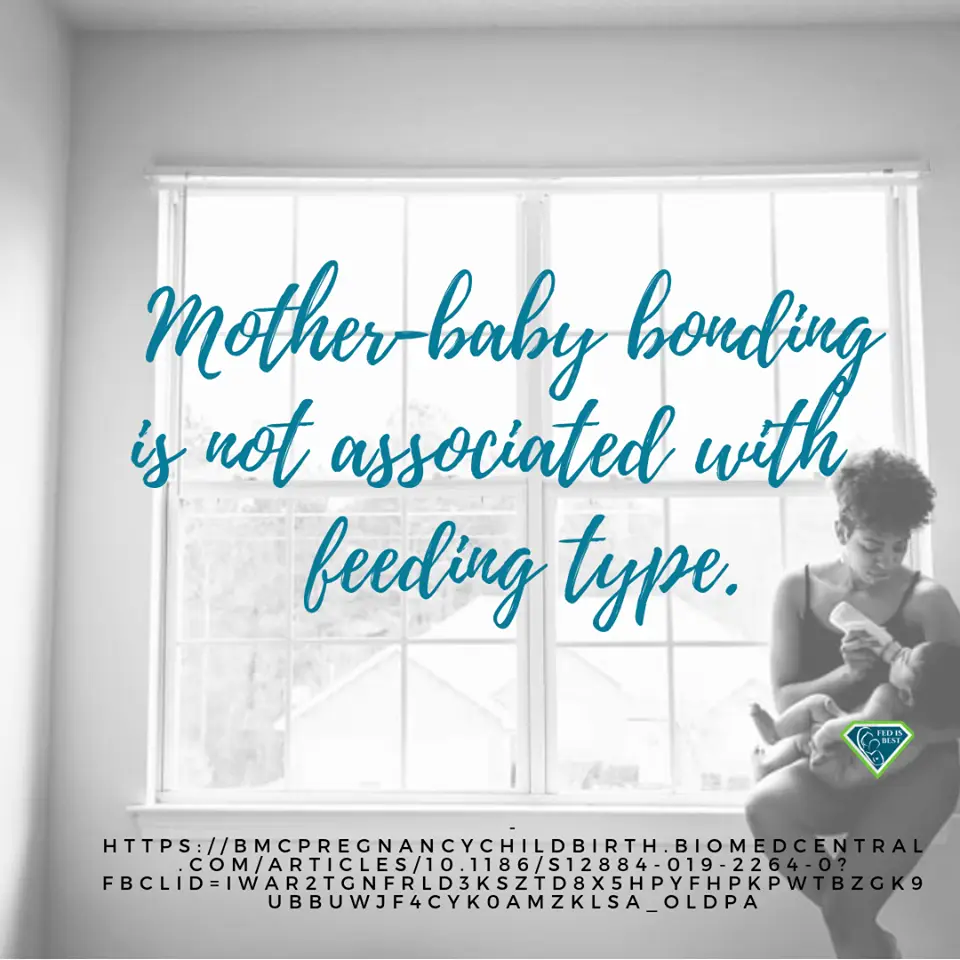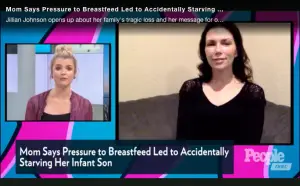Dear Chrissy Teigen,
Thank you for your Twitter post raising the very important topic of stress, guilt, and sadness when a breastfeeding mother experiences low milk production.
I could feel the deep despair you expressed through your words because I have supported thousands of mothers, just like you, who felt tremendous guilt and stress when they tried their best to make enough milk.
Can I emphatically tell you something? You and your body did not “fail” with making enough milk. You were failed by the current breastfeeding education and guidelines, which don’t fully inform mothers about their biological and psychosocial risk factors for low milk supply. Instead, parents are taught that every mother can make enough breast milk if she has the right support; but the research tells us that low milk supply is far more common than people realize. All of the support in the world cannot increase breastmilk supply if your body cannot biologically produce it!
normalize breastfeeding is such a huge, wonderful thing. but I absolutely felt way more shame having to use formula because of lack of milk from depression and whatnot.
— chrissy teigen (@chrissyteigen) November 29, 2020
"normalize breastfeeding" is great. "normalize formula" is great, too! so yeah. that's all! normalize formula! your baby is gonna be BEAUTIFUL, PERFECT, AND OKAY.
— chrissy teigen (@chrissyteigen) November 29, 2020
the stress of it, combined with the guilt that you cannot do nature's most natural thing for your own baby is too much. I dunno why this is my crusade now. I just remember the sadness I felt and want you to know you are doing it right if your baby is fed, mama.
— chrissy teigen (@chrissyteigen) November 29, 2020
Unfortunately, breastfeeding promotion and education has placed an ominous label on formula milk in hopes of increasing breastfeeding rates as part of the public health campaign of “Breast is Best.” Countless mothers have told me they were terrified to even use formula, even when they knew their baby was hungry and they didn’t have enough breast milk. Mothers are repeatedly told that “being fed formula is the bare minimum,” or formula is depicted as junk food, sometimes even by lactation consultants. I have blogged about these mothers’ horrific stories countless times to bring attention to this critically important matter. This mother took a letter from her psychiatrist to take to the hospital to protect her from being shamed for formula feeding her newborn. This mother had a suicide plan, and this mother attempted suicide from the relentless pressure to exclusively breastfeed. This mother took her life. According to her grieving husband, the relentless pressure to exclusively breastfeed played a key part in her tragic decision.

Formula milk is being depicted as ‘junk food’ by a lactation consultant.
Mammary physiology is not exempt from dysfunction, just like all other organ functions in our bodies. The largest study ever done to measure actual breast milk production was done by Kent et al. in 2016 following 116 breastfeeding mothers with and without breastfeeding problems. The mothers measured all the breast milk they fed their infants over the first month of life through direct feeding (using weighted feeds) and expressed breast milk feeding. This study found that between days 11 and 13, 2/3rd of the mothers could not produce more than the minimum 440 mL required to feed their infant exclusively and between 14 and 28 days, nearly 1/3rd could not produce that minimum.
This means that some mothers will not make enough breast milk and will need to use formula milk to nourish their babies so they thrive! Formula milk is based on the components of breastmilk and is nutritionally balanced to meet a baby’s dietary requirements.
No mother should be ashamed for using it because low milk supply is—and always has been—a struggle that some mothers face, through no fault of their own.
Breastfeeding has been strangely transformed to represent an idealized image of the most perfect, loving and best mother possible on social media by aggressive breastfeeding zealots. But a baby doesn’t bond with breastfeeding or formula feeding—a baby bonds and thrives on being fed with love by present loving parents.

Research has confirmed that a baby doesn’t bond with breastfeeding or formula feeding—a baby bonds and thrives on being fed with love by present loving parents.
This recent research, Breast Is (Viewed as) Best: Demonstrating Formula Feeding Stigma, published in Women’s Psychology, confirms your experiences.
Formula feeding stigma may have negative effects on maternal and infant well-being. Results provided the first experimental evidence of formula feeding stigma; the formula feeding mother was viewed less positively than the identical breastfeeding and control mothers, who were typically not perceived differently than one another.
These results imply that caregivers, health care providers, and policy makers should be mindful of the potential for pro-breastfeeding rhetoric to be associated with formula feeding stigma (with potential consequences for the health of women and infants) and consider implementing interventions designed to reduce stigma and promote awareness of the safety and utility of proper formula use.
This study suggested that negative public responses cause a mother to feel guilty for using infant formula and result in negative feelings of self-worth and dysfunctional maternal behaviors.

Day after day in our #fedisbest parent support group there are posts from mothers like this:

This mom could not biologically produce enough breastmilk to meet the exclusivity standards and felt like she was failing her baby. We supported her with our team of clinical experts and she went on to mix feed her baby knowing she was not a failure and her baby was not being fed substandard nutrition.
Ms. Teigen, your breastfeeding and formula feeding experience didn’t have to turn out like this, and I am so sorry you experienced sadness, stress, and guilt. Because of moms like you, who couldn’t find real support for shame and judgment-free infant feeding, I co-founded The Fed Is Best Foundation almost five years ago with my partner, Dr. Christie del Castillo-Hegyi. Dr. Christie launched our foundation by sharing her story about her delayed onset of breastmilk which hospitalized her son for life-threatening complications of unintended starvation while trying to exclusively breastfeed. You may have heard about the story of Jillian Johnson, whose baby boy Landon died from insufficient breastmilk intake–all to avoid ONE drop of formula milk.

We desperately need your help to destigmatize the shame and guilt related to formula feeding.
We would be honored if you would consider joining our #fedisbest advocacy team so that together we can bring awareness to the public to support all safe infant feeding with breast milk, formula, or a combination of both, eliminate infant feeding shaming while prioritizing perinatal mental health. Thank you for considering!
With warm regards,
Jody Segrave-Daly, MS, RN, IBCLC
Christie del Castillo-Hegyi, MD
Lynnette Hafken, MA, IBCLC



Our mission statement: The Fed is Best Foundation works to identify critical gaps in current breastfeeding protocols, guidelines, and education programs. We provide families and health professionals with the most up-to-date scientific research, education, and resources to practice safe infant feeding with breast milk, formula, or a combination of both. To be fully informed, parents must be taught the risks of insufficient breast milk intake when supporting exclusive breastfeeding in order to prevent hospitalizations for insufficient feeding complications. Finally, we strive to eliminate infant feeding shaming while prioritizing perinatal mental health.
Contact Us
- Fundraising Group. Please send an email to Jody@fedisbest.org if you are interested in joining any of our volunteer groups.
- If you need infant feeding support, we have a private support group– Join us here.
- If you or your baby were harmed from complications of insufficient breastfeeding please send a message to contact@fedisbest.org
- Make a donation to the Fed is Best Foundation. We are using funds from donations to cover the cost of our website, our social media ads, our printing, and mailing costs to reach health providers and hospitals. We do not accept donations from breast- or formula-feeding companies and 100% of your donations go toward these operational costs. All the work of the Foundation is achieved via the pro bono and volunteer work of its supporters.
- Sign our petition! Help us reach our policymakers, and drive change at a global level. Help us stand up for the lives of millions of infants who deserve a fighting chance. Sign the Fed is Best Petition at Change.org today, and share it with others.
- Share the stories and the message of the Fed is Best Foundation through word-of-mouth, by posting on your social media page, and by sending our FREE infant feeding educational resources to expectant moms that you know. Share the Fed is Best campaign letter with everyone you know.
- Write a letter to your health providers and hospitals about the Fed is Best Foundation. Write to them about feeding complications your child may have experienced.
- Print out our letter to obstetric providers and mail it to your local obstetricians, midwives, family practitioners who provide obstetric care and hospitals.
- Write to your local elected officials about what is happening to newborn babies in hospitals and ask for the legal protection of newborn babies from underfeeding and of mother’s rights to honest informed consent on the risks of insufficient feeding of breastfed babies.
- Send us your stories. Share with us your successes, your struggles, and everything in between. Every story saves another child from experiencing the same and teaches another mom how to safely feed her baby. Every voice contributes to change.
- Send us messages of support. We work every single day to make infant feeding safe and supportive of every mother and child. Your messages of support keep us all going.
- Shop at Amazon Smile and Amazon donates to Fed Is Best Foundation.
Or simply send us a message to find out how you can help make a difference with new ideas!
For any urgent messages or questions about infant feeding, please do not leave a message on this page as it will not get to us immediately. Instead, please email christie@fedisbest.org.
Thank you and we look forward to hearing from you!


I read that Ms. Teigen had breast surgery, which has been linked to lactation failure. Perhaps women who have had breast surgery, like augmentation or reduction, should be told when they get pregnant that they might have difficulty producing a full supply of milk. It could spare them from some surprises.